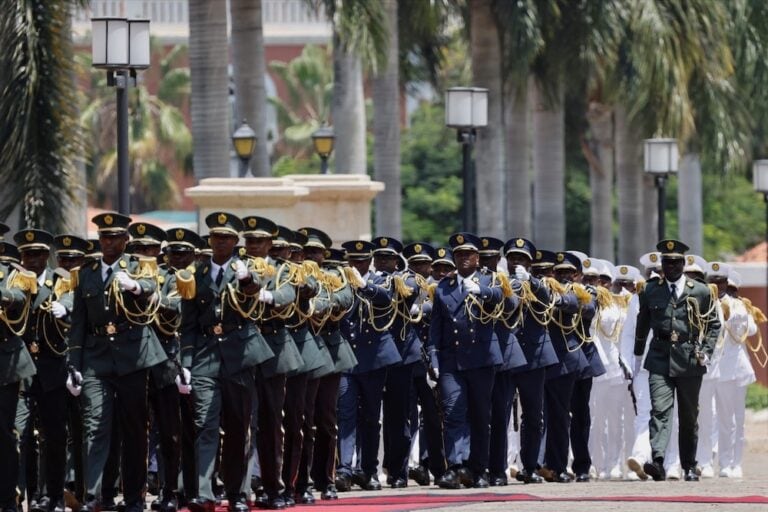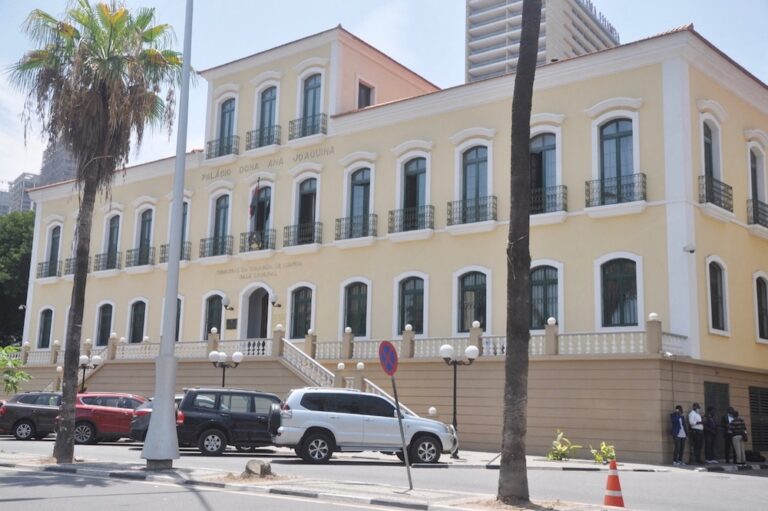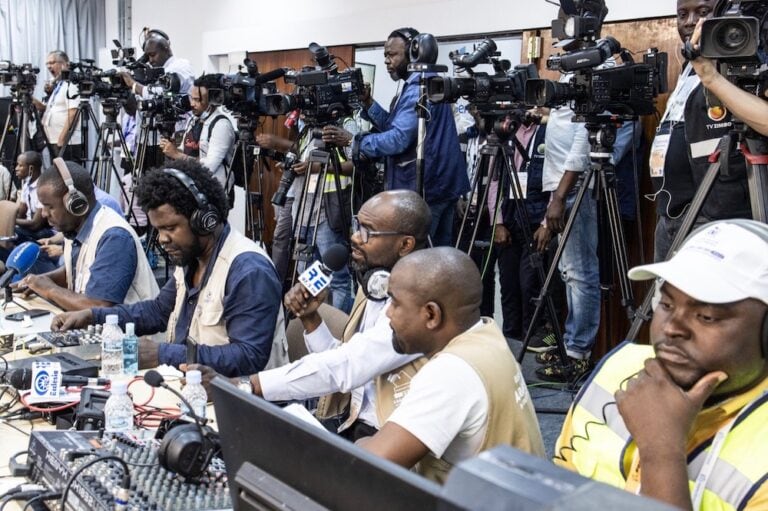(CPJ/IFEX) – The following is a copy of a letter received by CPJ from the Angolan Minister of Social Communications, Pedro Hendrik Vaal Neto, written in Luanda on June 23, 1999. The translation is an unofficial one, done by the Angolan Embassy in Washington DC: **Updates IFEX alerts of 9 July, 7 July and 10 […]
(CPJ/IFEX) – The following is a copy of a letter received by CPJ from the
Angolan Minister of Social Communications, Pedro Hendrik Vaal Neto, written
in Luanda on June 23, 1999. The translation is an unofficial one, done by
the Angolan Embassy in
Washington DC:
**Updates IFEX alerts of 9 July, 7 July and 10 June 1999**
Ms. Ann K. Cooper
Executive Director
Committee to Protect Journalists
Dear Ms. Cooper,
Your letter of 9 June, addressed to the President of the Republic of Angola,
has been brought to my attention. I will reply personally and begin by
thanking you for your concern regarding the safety of our journalists in the
private press.
Constitutional Law, on which our state is based, defines the Republic of
Angola as a democratic state of law and guarantees in its articles the
freedom of expression to all citizens, and consequently freedom of the
press.
In order to clarify this fundamental right, the Press Law and other laws
exist. These laws form the foundation of which not just the means of
communication of the state, but also the independent press, organize
themselves and to which they owe respect and obedience.
Despite the situation and exceptional circumstance in which the country is
living, newly immersed in a bloody conflict generated by the warmonger Jonas
Savimbi, the state and the Government of the Republic of Angola have never
intended to harass any journalist or shut down the private media. They
understand that, as much as possible, the hard won liberties, rights and
guarantees achieved by the Angolan people through democratic means must be
maintained.
After more than a decade of democracy, it has been shown that, even in war,
the Government declared no state of emergency or exceptional circumstance,
and no journalists can be found in any Angolan prisons who have justly or
unjustly been condemned and arrested for having published writings or
reports.
Journalists, as the citizens that they are, receive from the state and its
institutions the same legal treatment given to other citizens. They also
have obligations and duties, by which their activities at no time may
operate outside the law or place in danger the security and integrity of the
Angolan state.
In no part of the world should freedom of the press be confused with
anarchy, lack of respect for citizens of the state, violation of laws or
disobedience. Journalism, which we understand to be a noble profession,
cannot tolerate lies, attacks against personal dignity, libel or unfounded
rumors. This applies above all when such rumours sow seeds of panic and
insecurity in the hearts of the populace.
All that which, under the cloak of being a journalist, one judges to be the
right to freely attack any citizen or institution, should be considered
knowing that citizens and institutions have, in the same manner, the right
to defend themselves. They may choose to clarify, respond to journalists or
process them in court. This can be done without such action necessarily
being considered as a threat to their liberty or an attempt against
democratic principles that govern our society.
What we have done, and that is what took place during my recent interview
referenced in your letter, is merely to remind the bad, less competent and
insiduous journalists that they should carry out their profession with
respect and within the parameters established by law.
We regret that, through violence and audacious statements contained in
certain texts of some journalists, it can be seen that their objective is to
force the Government to react against them. In this way, they seek to
tarnish the image of the Government by joining forces with institutions such
as yours in accusing it of trampling the principles that govern a democracy.
The Angolan government has never demanded that any journalist support it, or
that the Government would oppose that person. I think that in the democratic
state in which we live, its options and positions should be dictated by the
consequences.
In conclusion, we need to reiterate that, on the one hand continuing to
guarantee to the entire Angolan nation a totally democratic regime, the
Angolan Government cannot on the other hand abdicate its responsibility to
denounce publicly the prevaricators of law – even if they are journalists.
If revealing military secrets and inciting draft age young men to
disobedience is a crime, those who are involved will be subject to the
consequences as determined by the law.
Sincerely,
Pedro Hendrik Vaal Neto
Minister of Social Communications
(signed)
Luanda, 23 June 1999
cc: All individuals who received a copy of the CPJ letter to the Government
of Angola


